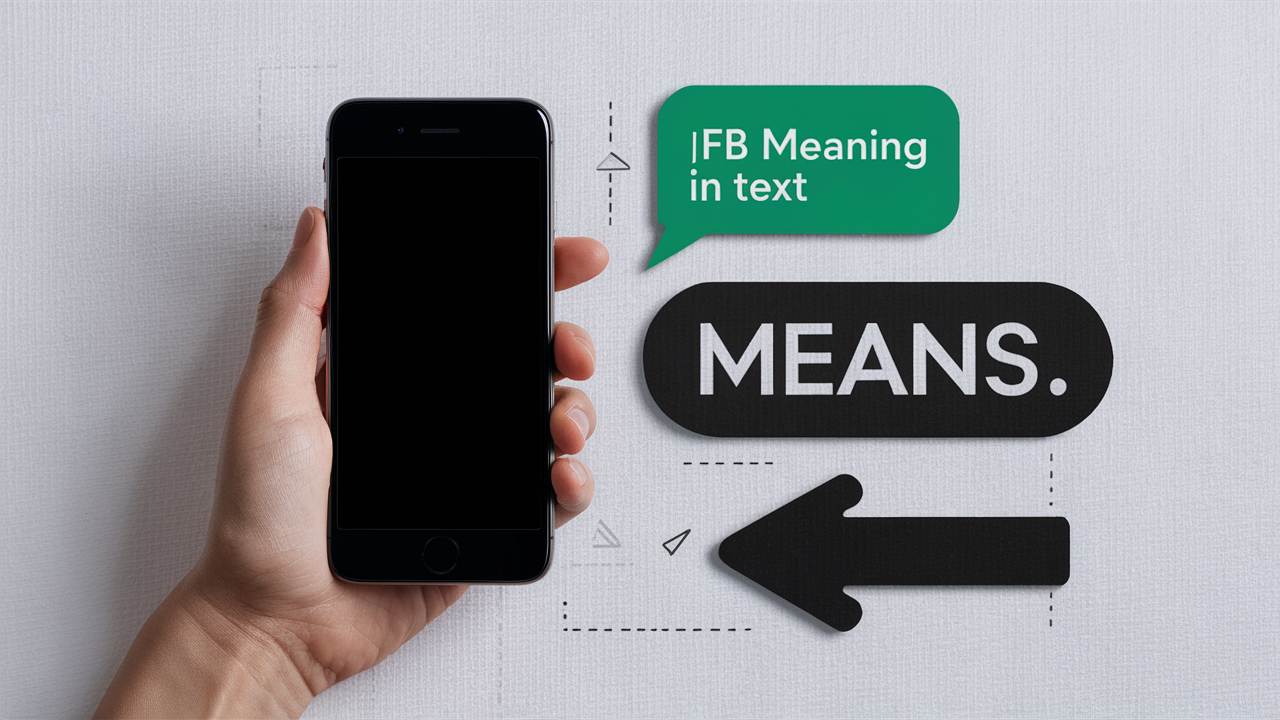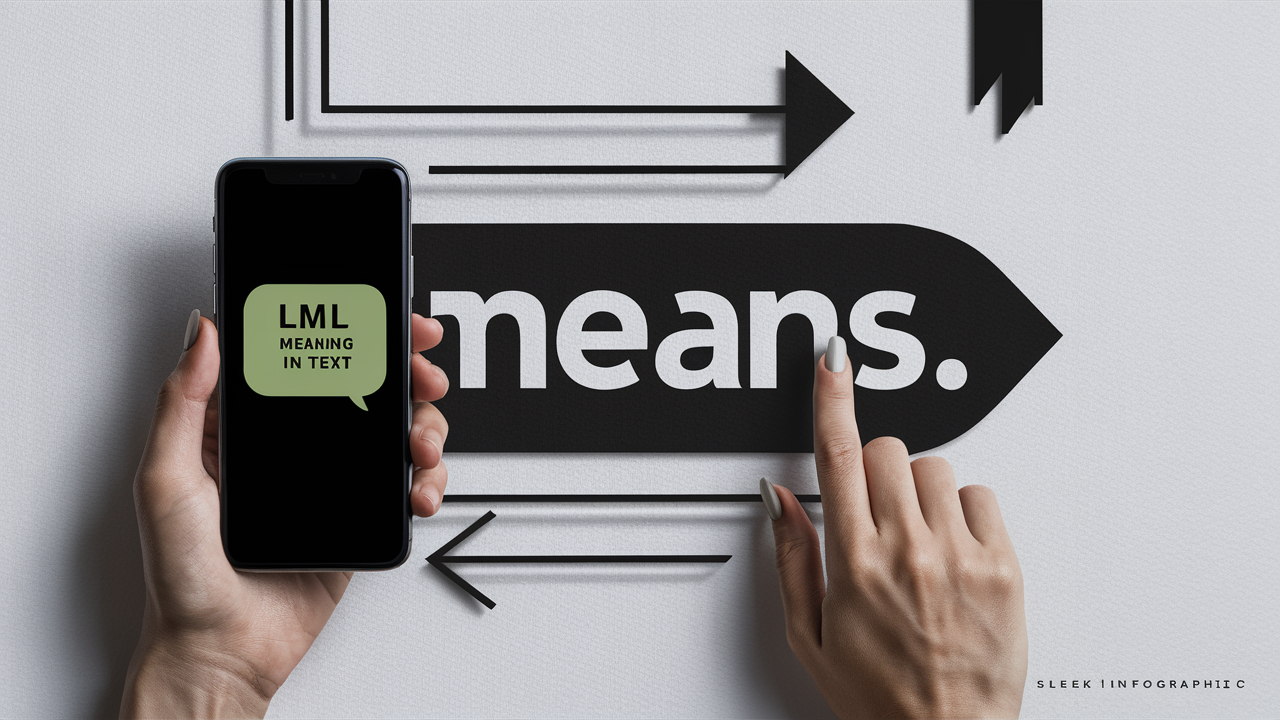Have you ever received a message that says “fb” and found yourself scratching your head? 🤔 It’s more than just a reference to social media. In texting and chat lingo, “fb” can carry a few subtle meanings depending on context, tone, and culture.
Understanding “fb meaning in text” can help you avoid miscommunications and read between the lines more clearly.
In this comprehensive guide, we’ll unpack all the possible interpretations of “fb” in 2025 conversation: when it’s social media shorthand, when it’s slang, and how to respond. Let’s dive deep into this two-letter code and decode it once and for all.
Why “fb” Is Worth Exploring
We live in a world where communication is rapid, emoji-rich, and abbreviations-heavy. One wrong interpretation and your message might backfire. That’s why “fb” deserves investigation. It straddles the line between social media shorthand and conversational expression.
Understanding “fb meaning in text” matters for:
- Decoding conversations with younger or digitally native users
- Avoiding confusion in group chats
- Knowing when “fb” refers to Facebook vs slang uses
Origins & Evolution of “fb” as Shorthand
The most obvious origin of “fb” is as an abbreviation for Facebook. Over time, though, the letters have taken on other roles in texting slang, sometimes as shorthand for phrases or ideas. Just like “gg,” “btw,” or “idk,” “fb” has evolved.
As texting and chat evolved, many users began co-opting “fb” in non–social media contexts, giving it layered meanings beyond the original platform reference.
Primary Meanings of “fb” in Texting Context
The meaning of “fb” depends heavily on context. Here are the most common interpretations you’ll find:
1. “fb” as Facebook
Probably the most common usage: “fb” refers to the social media platform **Facebook**. In chats, someone might say “I’ll message you on fb” or “Check it on fb.”
Example: “Send me the link on fb so I can share it there.”
2. “fb” as “Feedback”
In professional or academic chats, “fb” may be shorthand for **feedback**.
Example: “Can you give me fb on my draft?” → “Can you give me feedback on my draft?”
3. “fb” as “Flashback” or “Throwback”
In social media or nostalgic chats, “fb” may abbreviate “flashback” or “throwback,” especially when reminiscing.
Example: “That pic is a real fb moment.”
4. “fb” as “Full Back” (Sport Context)
In sports-related chats (especially American football), “fb” might stand for **fullback**—a player position. Context matters a lot here.
Example: “They shifted their formation, moved the fb in line.”
5. “fb” as Minor Slang / Inside Jargon
Sometimes, groups use “fb” as internal shorthand—private jokes, abbreviations, or references understood only by them.
How to Determine Which “fb” Is Meant
Given the multiple meanings, how do you know which one applies? Watch for these cues:
- Surrounding context: Are you talking about apps, work, nostalgia, sports?
- Accompanying words: “Send on fb” likely means Facebook; “give me fb” likely means feedback.
- Casual vs formal setting: In formal or workplace chats, “fb” as feedback is more likely.
- Domain of conversation: Sports chat? Probably the “fullback” meaning.
“fb” vs Other Abbreviations (FB, FBK, F/B, etc.)
It’s helpful to contrast “fb” with similar-looking or related abbreviations:
| Abbreviation | Typical Meaning | Use Case / Tone |
|---|---|---|
| fb | Facebook, feedback, flashback, fullback | Versatile, context-dependent |
| FB | Same as “fb” but sometimes emphatic or capitalization to indicate the platform | Used at start of sentence or emphasis |
| F/B | Forward/Backward (in design / direction contexts) | Technical or design discussions |
| FBK | Feedback (less common) | Sometimes used in workplace chats |
Signed vs Unsigned “fb” — Impact of Punctuation & Emojis
How “fb” is punctuated or paired with emojis can shift tone:
- “fb 😊” → friendly, light mention of Facebook
- “fb?” → asking which meaning or confirming (“Do you mean Facebook?”)
- “fb!!” → emphasis (“Yes, definitely Facebook!”)
- “fb…” → trailing, unsure or reflective (“Thinking about that Facebook post…”)
Examples in Different Conversations
Below are real-world-ish examples showing different senses of “fb”:
Example A: Social Media Reference
User A: “Can you send me that video on fb?”
User B: “Sure, I’ll dm you there.”
Meaning: Facebook
Example B: Feedback Request
Colleague A: “I sent the report—want to give me fb?”
Colleague B: “Yes, happy to share my thoughts.”
Meaning: Feedback
Example C: Flashback / Nostalgia
Friend A: “Remember that trip? That was such an fb moment.”
Friend B: “Totally — I miss those days.”
Meaning: Flashback or throwback
Example D: Sports Talk
Fan A: “They brought in a new fb this season.”
Fan B: “Yeah, he’s strong in the backfield.”
Meaning: Fullback (sports position)
When “fb” Can Be Misunderstood
Because “fb” is ambiguous, misuse can cause confusion or awkwardness. Here are some pitfalls and tips:
- In formal emails: Avoid “fb” unless everyone clearly understands the meaning.
- Talking across age groups: Older users might interpret “fb” only as Facebook, not feedback.
- In group chats: Clarify if multiple meanings make sense in that context.
- When clarity is essential: Use full words—“feedback,” “Facebook,” or “throwback”—instead of “fb.”
Regional & Cultural Differences in “fb” Use
How “fb” is used can vary across cultures and communities:
- In English-speaking social media contexts, “fb” often means Facebook or feedback.
- In tech or design circles, “fb” as feedback is common parlance.
- In sports fandom (e.g. U.S. football), “fb” as fullback may appear more often.
- Groups might adopt local slang expansions of “fb” (inside jokes, shorthand for local words).
SEO Tip: Using “fb meaning in text” in Your Content
If you’re a content creator or SEO writer, here are best practices to cover “fb meaning in text” thoroughly:
- Include exact phrase (“fb meaning in text”) early in your content (first 100 words).
- Use variants like “fb abbreviation meaning,” “meaning of fb in messages,” “fb texting meaning.”
- Structure with clear headings so search engines can surface a snippet.
- Use examples, tables, FAQs to boost dwell time and user engagement.
- Always include internal linking, e.g. Slang & Abbreviations Guide.
Psychology & Tone Behind “fb” Use
Why do people use “fb” instead of the full word? Here’s what’s going on:
- Typing economy: Shorter is faster.
- Group shorthand culture: Inside groups often adopt abbreviations.
- Tone modulation: “fb” can soften or neutralize the statement.
- Buffering emotion: It’s less forceful than spelling the full term.
When to Use “fb” — Best Practices & Guidelines
Let’s draw some boundaries around good vs ill usage:
✅ Good Use Cases
- Casual chats with friends who understand the abbreviation
- Design / development / team environments where “fb” as feedback is expected
- Social media planning discussions (referring to Facebook quickly)
- Nostalgic or informal chats referencing flashbacks
❌ When to Avoid “fb”
- Formal, professional, or client communication
- When the meaning might be ambiguous
- Conversations with people unfamiliar with texting jargon
- When tone or clarity is important (e.g. contracts, requests)
“fb” Across Platforms: SMS, Chat, Social Media
How “fb” behaves depends on where you use it:
- SMS / Messages: Simple shorthand reference to Facebook or feedback.
- WhatsApp / Telegram / Messenger: Emojis or follow-up messages often clarify meaning.
- Social / comment threads: “fb” may be interpreted as Facebook or refer to nostalgia (“flashback”).
- Email / Workplace Tools (Slack / Teams): If “fb” is used, it likely means feedback. But clarity is safer.
Featured Snippet-Optimized Definition
“fb” in text messages often means **Facebook**, but can also mean **feedback**, **flashback**, or even **fullback**—depending on the context, tone, and conversation domain.
Combining “fb” With Other Slang & Acronyms
In informal conversation, “fb” often shows up alongside other shorthand:
- “fb pls” → “Please send via Facebook” or “Please give feedback”
- “fb & lol” → “Facebook and haha” or “feedback, haha”
- “fb asap” → “Feedback as soon as possible”
- “fb throwback” → “Facebook throwback / flashback moment”
FAQ: Common Questions About “fb” Meaning
Q1: Is “fb” always about Facebook?
Nope. While that’s often the default, “fb” can also mean feedback, flashback, or fullback, depending on context.
Q2: Can “fb” be misinterpreted?
Yes. That’s the risk. If you use “fb” without clarity, people might assume a different meaning—especially outside your circle.
Q3: Should I clarify when using “fb”?
Absolutely. If there’s any chance of confusion, follow up with the full word: “I meant feedback” or “I meant Facebook.”
Q4: Is “fb” common in 2025 texting culture?
It’s still used, particularly in informal, tech-savvy, or social media–focused groups. But context and clarity remain key.
Q5: Does “FB” vs “fb” change meaning?
Not usually. Capitalization may reflect a sentence start or emphasis, but the meaning is generally the same.
Conclusion / Final Thoughts
The small abbreviation **“fb”** packs more possibilities than you might expect. It can point to Facebook, feedback, flashbacks, or even sports terms—depending entirely on the setting. In 2025’s messaging world, ambiguity carries risk, so always consider your audience, tone, and clarity before sending.
When in doubt, spell it out: say “feedback” or “Facebook” to avoid misfires. Over time, you’ll get better at reading others’ use too — context becomes your best friend.
If you found this helpful, check out our other slang & abbreviation guides, like Slang & Abbreviations Guide, and feel free to share your “fb” stories or questions below! 💬
Call to Action: If this article enlightened you about “fb meaning in text,” dive into more of our slang breakdowns, share with someone curious, and leave your own examples in the comments! 🚀



